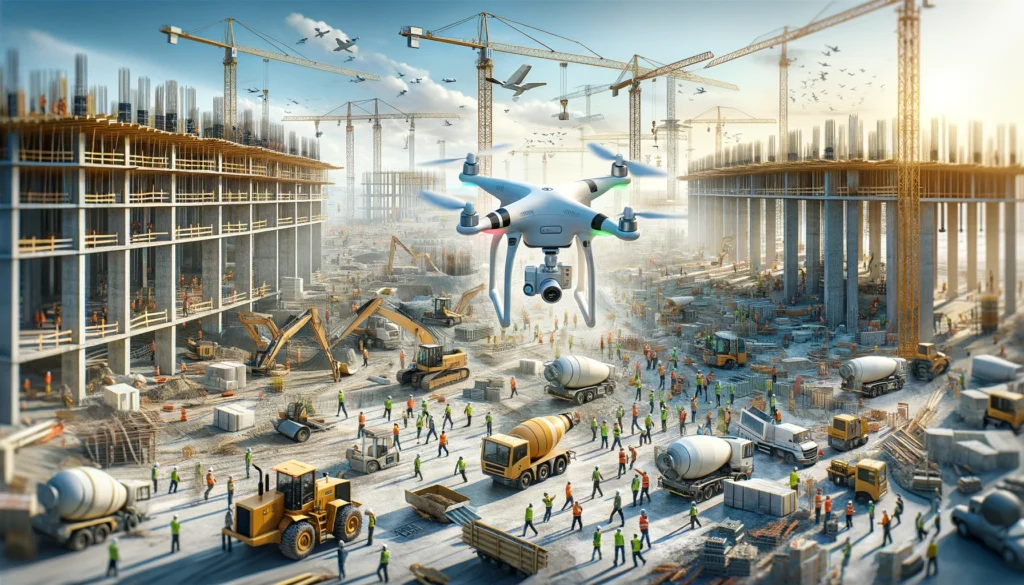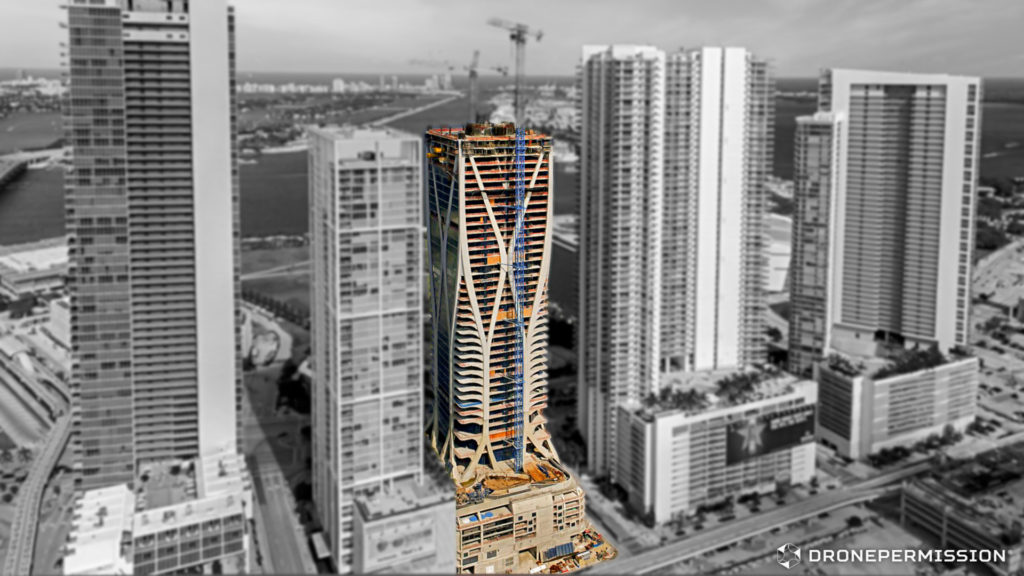How Aerial Drone Services Help Construction Progress Monitoring

In today’s fast-paced construction industry, staying on top of project progress is essential for success. Fortunately, the advent of drone technology has revolutionized construction progress monitoring, offering unmatched efficiency, accuracy, and cost-effectiveness. If you’re involved in the construction industry, whether as a project manager, contractor, or stakeholder, Knowing the advantages and uses of drones in construction is essential to staying ahead in the game. In this article, we’ll dive deep into the world of drone services, exploring how drones are reshaping the way construction projects are planned, executed, and monitored.
Why are Drone services important in the Construction Process?
In recent years, drones have emerged as indispensable tools for construction professionals, offering a wide range of benefits, from real-time progress tracking to enhanced site safety. By leveraging drone technology, construction companies can streamline their workflows, reduce costs, and mitigate risks, ultimately delivering projects more efficiently and effectively. Whether you’re new to drones in construction or are looking to optimize your current practice, this article will provide you with valuable insights and practical tips for harnessing the power of drones to monitor construction progress.
Introduction to Drone-Assisted Construction Progress Monitoring
Drones, also known as unmanned aerial vehicles (UAVs), have transformed numerous industries, including construction, with their ability to capture high-resolution aerial imagery and real-time data. In the construction sector, drones are revolutionizing progress monitoring by providing project managers, contractors, and stakeholders with unprecedented insights into construction sites. By leveraging drones, construction professionals can monitor progress, detect issues, and make informed decisions more efficiently and accurately than ever before.
Benefits of Using Drones in Construction
The benefits of using drones in construction are manifold. Firstly, drones enable real-time monitoring of construction progress, allowing project managers to track the status of their projects with greater accuracy and efficiency. Additionally, drones provide high-resolution aerial imagery, which can be used for site analysis, surveying, and mapping. Moreover, drones help improve safety on construction sites by reducing the need for manual inspections in hazardous areas, therefore reducing labor costs. Overall, using a drone saves time and money, and enhances productivity in construction projects.
How Drones Enhance Construction Site Monitoring
Drones enhance construction site monitoring in several ways. Firstly, drone flights can capture aerial images and videos of construction sites, providing project managers with a comprehensive view of site progress. Secondly, drones enable real-time monitoring of construction activities, allowing project managers to identify potential issues and take corrective action promptly. Thirdly, drones can be equipped with sensors and cameras to collect data on various aspects of construction, such as site conditions, materials, and equipment usage.
Here is a video of an example of the footage we’ve used for one of our clients in Miami.
Key Considerations for Implementing Drone Services
While drones offer numerous benefits for construction progress monitoring, there are several key considerations that construction companies must take into account when implementing drone services. Firstly, regulatory compliance is essential, as drones are subject to strict regulations governing their operation in airspace. Secondly, data security and privacy must be prioritized to protect sensitive information collected by drones. Additionally, construction companies must ensure that their personnel are adequately trained to operate drones safely and effectively.
Real-World Applications of Drone Technology in Construction
Drones are being used in various real-world applications in construction projects. For instance, drones are used to create 3D models of construction sites, enabling project managers to visualize progress and identify potential issues. Drones are also used for stockpile volume measurements, allowing project managers to accurately estimate material quantities. Moreover, drones are used for site inspections, allowing project managers to identify safety hazards and compliance issues.
Overcoming Challenges and Limitations
While drones offer numerous benefits for construction progress monitoring, they also present certain challenges and limitations. For instance, adverse weather conditions such as strong winds and rain can affect drone operations, limiting their ability to capture data. Moreover, technical issues such as battery life and GPS accuracy can impact drone performance. Additionally, regulatory compliance can be challenging, as construction companies must navigate complex airspace regulations and obtain necessary permits for drone operations.
Best Practices for Drone-Assisted Construction Progress Monitoring
To maximize the benefits of drone-assisted construction progress monitoring, construction companies should follow best practices. Firstly, construction companies should establish clear objectives for drone use, identifying specific tasks and goals that drones can help accomplish. Secondly, construction companies should invest in high-quality drones and equipment, ensuring reliability and performance. Moreover, construction companies should prioritize safety, implementing protocols and procedures to minimize risks associated with drone operations.

Choosing the Right Drone Services Provider
Choosing the right drone services provider is essential for successful implementation of drone-assisted construction progress monitoring. Construction companies should consider factors such as the provider’s expertise, experience, and track record in the industry. Additionally, construction companies should assess the provider’s equipment and capabilities, ensuring compatibility with their specific needs and requirements. Moreover, construction companies should evaluate the provider’s pricing and service offerings, ensuring that they receive the best value for their investment.
Maximizing ROI with Drone Data Analysis
Maximizing return on investment (ROI) with drone data analysis is essential for construction companies looking to leverage drones for progress monitoring. Construction companies should analyze drone data to extract actionable insights and identify trends that can inform decision-making and improve project outcomes. Additionally, construction companies should integrate drone data with other project data sources, such as building information modeling (BIM) and project management software, to create a comprehensive view of project progress.
Future Trends and Innovations in Construction Drone Technology
The future of construction drone technology is promising, with numerous innovations and advancements on the horizon. For instance, advancements in autonomous flight technology are enabling drones to operate more independently and efficiently, reducing the need for manual piloting. Moreover, AI-powered analytics are enabling drones to analyze data in real-time and provide actionable insights to project managers. Additionally, integration of advanced imaging technologies such as lidar and thermal imaging is expanding the capabilities of drones for construction progress monitoring. As these technologies continue to evolve, the role of drones in construction is expected to grow significantly, reshaping the way construction projects are planned, executed, and monitored.
Keytakeaways
- Drones offer unparalleled efficiency, accuracy, and cost-effectiveness in construction progress monitoring.
- Real-time data capture, aerial imagery, and videography are among the key capabilities of drones in construction.
- Overcoming challenges such as regulatory compliance and technical limitations is essential for successful implementation of drone services.
- Choosing the right drone services provider and maximizing ROI through data analysis are critical considerations for construction professionals.
- Future trends in construction drone technology include advancements in autonomous flight, AI-powered analytics, and integration of advanced imaging capabilities.
